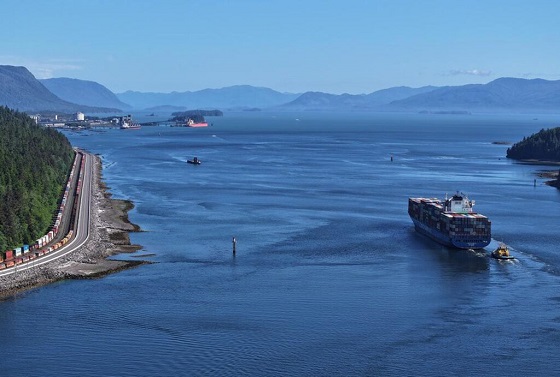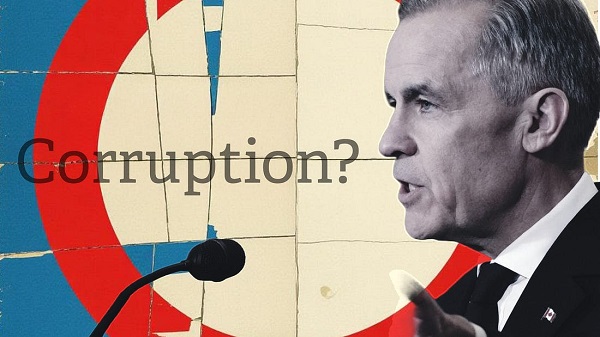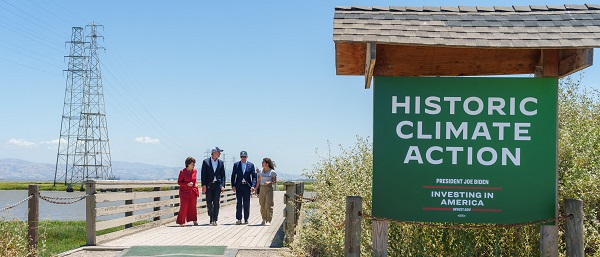Business
The CRTC said it would leave podcasts alone. Turns out that was a myth

From the MacDonald-Laurier Institute
This article originally appeared in the Hub.
By Peter Menzies, October 4, 2023
It’s clear the regulator is about to draw podcasts into its warm embrace.
The CRTC has backtracked on its promise to leave podcasts alone.
On May 12, the federal regulator stated in its “Myths and Facts” release that concerns it would regulate content such as podcasts were a “myth” and the “fact” of the matter was that “a person who creates audio or video content or creates a podcast, is not a broadcaster under” the Online Streaming Act (Bill C-11).
That “fact” didn’t live long. It expired September 29 when, in its first decisions since being granted authority over the internet, the CRTC changed lanes.
While it was careful to state that podcasters themselves don’t have to register with the Commission, the web-based platforms that make podcasts available must do so. Indeed, podcasters may not be broadcasters, but very much as predicted by the legislation’s critics, the CRTC has found ways to bring them into scope anyway.
It decided that podcasts constitute “programs under the Broadcasting Act, given that they are comprised of sounds intended to inform, enlighten or entertain.”
The regulator’s decision further explains that while podcasters may not be broadcasters, the transmission of podcasts over the internet most definitely “constitutes broadcasting” which makes those entities that platform podcasts into cable companies.
So while the CRTC concedes that while “the Broadcasting Act does not give the Commission a mandate to regulate creators of programs” it nevertheless makes clear that its powers do cover “those services that are involved in the broadcasting of programs, which are referred to as broadcasting undertakings.”
Is your head spinning yet?
The legal contortions continue throughout the decision, but the clear takeaway, the bottom line, is that, while it keeps insisting it doesn’t intend to regulate the content of podcasts, it is very concerned about the content of podcasts and if it can’t legally regulate them, it’ll make sure someone else does it for them.
Paragraph 223 of its decision makes it clear the CRTC is about to draw podcasts into its warm embrace.
Without information about online undertakings that transmit or retransmit podcasts, it would be more difficult for the Commission to ensure the achievement of the objectives of … the Broadcasting Act, which relate to, among other things, providing a reasonable opportunity for the public to be exposed to the expression of differing views on matters of public concern, and (that) the programming provided by the Canadian broadcasting system should be varied and comprehensive, providing a balance of information, enlightenment and entertainment for people of all ages, interests and tastes.
In other words, what the CRTC denounced as “myth” in the spring has become a “fact” in the fall. It has kicked open the door to the regulation of online content, if not directly then by proxy through the platforms that deliver the work of podcasters to their audiences.
It is a bureaucratic master stroke.
Here’s what will follow.
The list of intervenors presenting at the CRTC’s public hearing coming up in late November indicates the panel of commissioners will hear from a number of groups that will explain the extent to which they are under-represented and funded. So, a possible outcome of this will be that services that carry podcasts will have to fund podcasters who, on their own, haven’t been able to find an audience.
Just as likely is that platforms will be regulated to ensure podcasts designated by the CRTC are given priority visibility/discoverability online over undesignated podcasts through the manipulation of algorithms. These are likely to be podcasts by Indigenous, BIPOC and LGBTQ2S creators.
As erstwhile CRTC Chair Ian Scott told the Senate committee studying Bill C-11 in 2022:
Instead of saying, and the Act precludes this, we will make changes to your algorithms as many European countries are contemplating doing, instead, we will say this is the outcome we want. We want Canadians to find Canadian music. How best to do it? How will you do it? I don’t want to manipulate your algorithm. I want you to manipulate it to produce a particular outcome. And then we will have hearings to decide what are the best ways and explore it.
This was reinforced in an exchange Scott had with Senator Pamela Wallin, who suggested proponents of the bill were parsing their words and that:
You won’t manipulate the algorithms; you will make the platforms do it. That is regulation by another name. You’re regulating either directly and explicitly or indirectly, but you are regulating content.
To which Mr. Scott replied: “you’re right.”
The CRTC has now confirmed what it denied mere months ago when it was parroting then-Heritage Minister Pablo Rodriguez’s talking points.
It will make sure podcasts and any other internet content it can capture is regulated.
Peter Menzies is a Senior Fellow with the Macdonald-Laurier Institute, a former newspaper executive, and past vice chair of the CRTC.
Automotive
$15 Billion, Zero Assurances: Stellantis Abandons Brampton as Trudeau-Era Green Deal Collapses

Carney issues memos, Joly writes letters, and Freeland hides abroad—while 3,000 Canadian workers pay the price for a green gamble built on denial and delusion.
Stellantis has announced they’re leaving Brampton. That’s it. End of story.
Three thousand workers. Gone. A manufacturing base gutted. A city thrown into economic chaos. And a federal government left holding a $15 billion bag it handed over like a drunk tourist at a rigged poker table.
The Jeep Compass—the very vehicle they promised would anchor Ontario’s role in the so-called “EV transition”—will no longer be built in Canada. Production is moving to Belvidere, Illinois. The same company that cashed billions of your tax dollars under the banner of “green jobs” and “economic transformation” has slammed the door and walked out. And no, this isn’t a surprise. This was baked into the cake from day one.
Let’s rewind.
In April 2023, under Justin Trudeau’s government, Chrystia Freeland—then Finance Minister—and François-Philippe Champagne, the Industry Minister, announced what they called a “historic” agreement: a multi-billion-dollar subsidy package to Stellantis and LG Energy Solution to build an EV battery plant in Windsor, Ontario.
It was sold as a turning point. The future. A Green Revolution. Thousands of jobs. A new industrial strategy for Canada. But in reality? It was a Hail Mary pass by a government that had already crippled Canada’s energy sector and needed a shiny new narrative heading into an election cycle.
And here’s what they didn’t tell you: the deal had no enforceable commitment to keep auto production in Brampton. There were performance-based incentives—yes—but only for the battery plant. Not for the Brampton assembly line. Not for the existing workforce. And certainly not for ensuring the long-term health of Canada’s domestic auto industry.
They tied this country’s future to a globalist fantasy. A fantasy that assumed the United States would remain under the control of climate-obsessed technocrats like Joe Biden. A fantasy that required a compliant America pushing carbon neutrality, electric vehicle mandates, and billions in matching subsidies for green infrastructure.
But in November 2024, Americans said no.
Donald Trump was elected president. And just as he promised, he tore Biden’s green agenda to shreds. He pulled out of the Paris Climate Accord—again. He dismantled the EV mandates. He unleashed American oil and gas. But he didn’t stop there. Trump imposed a sweeping America First manufacturing policy, pairing 25% tariffs on imported goods with aggressive incentives to bring factories, jobs, and supply chains back onto U.S. soil.
And it’s working—because the United States doesn’t strangle its industries with the kind of red tape, carbon taxes, and bureaucratic self-sabotage that Canada does. Energy is cheaper, regulations are lighter, and capital actually wants to stay. So when companies like Stellantis look at the map, it’s no contest.
Now Stellantis, like any rational corporation, is doing what any business does under pressure: protecting its bottom line. They’re shifting production to a country that rewards investment instead of punishing it, a country that actually wants to build things again. That’s Trump’s America—competitive, unapologetic, and open for business—while Canada clings to a collapsing green fantasy and wonders why the factories keep leaving.

So what does Canada do in response? Our Prime Minister, Mark Carney, issues a carefully scripted memo on social media—not action, not legislation, not binding commitments—just a memo—reassuring workers he “stands by” the auto sector while offering vague promises about future budgets and long-term resilience. Lets be clear Carney isn’t saving jobs; he’s eulogizing them. Those 3,000 positions aren’t “paused” or “in transition.” They’re gone. Finished. Packed up and heading south. No memo, no committee, no press conference is bringing them back.
Chrystia Freeland, the architect of this mess, isn’t around to answer for any of it. She’s been conveniently shipped off to Kyiv, far from the consequences of the green boondoggles she helped engineer

And Industry Minister Mélanie Joly? She’s doing what this government does best: issuing strongly worded letters, drafted by lawyers, polished by comms teams, and lobbed into the void like they carry any real weight. She’s threatening legal action against Stellantis—vague, undefined, and almost certainly toothless. As if a global automaker backed by EU investors and billions in international capital is going to flinch because Ottawa wrote them a nasty note.
But let’s be absolutely clear here—what legal action? What’s the actual mechanism Ottawa is threatening to use? This wasn’t a blank cheque handed to Stellantis. According to public records, The $15 billion deal was built around performance-based incentives, structured to release funding only if Stellantis delivered on agreed milestones: production output, sales volume, battery module manufacturing at the Windsor facility. If they didn’t meet those metrics, they wouldn’t get paid. That’s the public line. That’s the defense.
Opposition Calls for Accountability
Conservatives, led by Raquel Dancho, are demanding real accountability, a formal investigation, a full reopening of the House of Commons Standing Committee on Industry and Technology (INDU) under Standing Order 106(4).
This isn’t a symbolic gesture. It’s a procedural weapon. When invoked, 106(4) forces Parliament to reconvene the committee, even if the government doesn’t want to, and compels ministers and officials to testify under oath. That’s what Dancho and her colleagues, Ted Falk, Michael Guglielmin, and Kathy Borrelli, have done. Their letter, dated October 15, 2025, demands that INDU immediately examine the Stellantis debacle — the $15 billion taxpayer-funded subsidy that failed to secure a single guarantee for Canadian auto jobs.
The letter is explicit. It references Stellantis’ decision to move Jeep Compass production from Brampton, Ontario to Illinois, a move that puts 3,000 Canadian jobs at risk despite the billions handed to the automaker under the Trudeau-Freeland-Carney green industrial strategy. It details how the federal and Ontario governments offered over $15 billion to secure battery plant investments, but with no enforceable job protection clauses to safeguard workers at Stellantis’s Canadian operations.
It doesn’t stop there. The letter points directly at Mark Carney, accusing him of breaking his promise to “put elbows up” and negotiate a fair deal with President Trump. It notes that Carney’s October 7th White House visit yielded nothing but new U.S. tariffs on Canadian autos and lumber, while Stellantis and GM expanded their operations south of the border. “Mark Carney broke his promise,” the MPs write, “and his weakness abroad is costing Canadian jobs at home.”

Dancho’s accompanying tweet lays out the message clearly and without spin:
“Stellantis received up to $15 billion in taxpayer subsidies—with no assurances of job retention in Canada. Yesterday, Stellantis announced that they were moving production to the U.S. and investing $13 billion in their economy. Conservatives are calling to reconvene the Industry Committee to study this decision and learn how such a failure happened. While the Liberals pat themselves on the back for announcements and rhetoric, auto workers are being told that their jobs are on the chopping block. They deserve clarity.”
Dancho’s move changes the game. With the NDP gutted and no longer shielding the government in committee, the opposition finally has the numbers and the mandate to dig. Ministers like Mélanie Joly and François-Philippe Champagne will now have to answer, under oath, for the deals they signed. Officials from Innovation, Finance, and Employment Canada will be subpoenaed to explain what oversight, if any, was built into the Stellantis agreements.
Final thoughts
I wrote about this when the deal was signed, and I wasn’t guessing. I said it plainly: this $15 billion green industrial experiment was a reckless, ideological bet that depended entirely on Donald Trump not winning the presidency.
Now here we are. Trump’s back in office — and he’s gone even further than I predicted. He didn’t just rip up Biden’s climate agenda; he imposed broad “America First” tariffs across the board to drag manufacturing back onto U.S. soil. Twenty-five percent duties on Canadian and Mexican goods, combined with tax breaks and energy policies that make it cheaper to produce in America than anywhere else. That single move detonated the fragile logic behind Trudeau and Freeland’s so-called industrial strategy.
So Stellantis did what any corporation would do when faced with a government that punishes production and a neighbour that rewards it: it packed up and left. The company took billions in Canadian subsidies, thanked Ottawa for the free money, then announced a $13 billion expansion in the United States—under Trump’s protectionist umbrella.
Let’s be clear: when I bet, I bet smart. I hedge. I read the table. I make damn sure I’m holding something real. These people—the Liberal government—went all in with a high card and a hollow narrative, betting your tax dollars on a political fantasy. They thought they could bluff their way into an industrial renaissance while ignoring the shift happening just across the border.
And you want final thoughts? Here they are: I am absolutely sickened by the people responsible for this disaster and you know exactly who I mean. Chrystia Freeland, who vanished from Cabinet and failed up into some made up ambassador’s post, her entire political career a string of bailouts, virtue signals, and globalist pageantry. And François-Philippe Champagne, the man who handed out our tax dollars like Monopoly money and couldn’t negotiate a cup of coffee without being outplayed.
They won an election based on this. Based on lies. Based on phony climate promises and fake job projections and polls manipulated by the same Mainstream Media that cashes federal subsidy cheques while calling themselves journalists. Do you think they’re going to hold Champagne accountable? Do you think they’re going to track Freeland down between photo ops in Kyiv and ask how 3,000 Canadian families are supposed to pay their mortgage now?
Of course not. They’re all on the same payroll.
Well guess what, I’m not. I don’t take their money. I don’t need their approval. And I am not shutting up. Not now. Not until that committee gets answers. Not until those ministers are dragged before Parliament. And not until Chrystia Freeland and François-Philippe Champagne are fired for the betrayal they’ve inflicted on Canadian workers.
This isn’t over. Not by a long shot. I’m going to bang this drum until it splits. And every time they try to bury this story, I’ll be there digging it back up. You’ve been lied to. Robbed. Betrayed. And someone is finally going to answer for it.
So stay tuned. Stay loud. And for God’s sake, stay angry.
Business
Ford’s Whisky War

 Marco Navarro-Génie
Marco Navarro-Génie
One could do a whole series of opinion and research pieces on how poorly educated Canadian politicians are about economic and trade principles. Below is my latest on the topic, focusing on Doug Ford’s latest philistine tantrum. My next piece will be on Wab Kinew. Writing on their lack of discipline and poor habits can be a cottage industry for commentators.
Haultain’s Substack is a reader-supported publication.
To receive new posts and support our work, please consider becoming a free or paid subscriber.
Try it out.
When a politician pours whisky on the ground, it usually means she has run out of ideas.
A few weeks ago, in September, Ontario Premier Doug Ford staged a protest worthy of a talk-show segment. Before a union crowd in Brampton, he emptied a bottle of Crown Royal onto the stage and vowed its maker, Diageo, would “pay dearly.” He threatened to pull Crown Royal (and several ither brands) from LCBO shelves, declaring Ontario would use its market power to punish the distiller for closing its Amherstburg bottling plant.
It was a vivid scene, part theatre, part tantrum, and entirely revealing.
Diageo is one of the world’s largest producers of spirits and beer, headquartered in London, England. It owns more than two hundred brands, including Johnnie Walker, Guinness, Tanqueray, and Baileys, and sells in over 180 countries. The company was formed in 1997 through the merger of Guinness and Grand Metropolitan, and it inherited Crown Royal from the old Seagram portfolio. Diageo’s Canadian operations remain significant, with the Gimli, Manitoba distillery producing every drop of Crown Royal whisky sold worldwide. It’s a Canadian product.
Diageo’s decision was not an act of treachery but arithmetic. The company plans to close its Amherstburg facility by 2026, shifting bottling to Quebec and parts of the United States. Roughly two hundred jobs will vanish. For a town of twenty-three thousand, that is a deep cut. Yet Ford’s reaction transforms an industrial decision into a political drama. He recasts an economic adjustment as a moral betrayal, as if loyalty to Ontario were a debt every business must pay in perpetuity.
That sentiment plays well at partisan rallies. But in practice, it blurs the boundary between government and market. When politicians confuse the two, policy becomes a tool of temper rather than governance.
Once a premier signals that he will use public institutions like the LCBO as weapons, investors take note. And they should. They infer that Ontario’s business climate can change with the premier’s mood. Capital, unlike politicians, is dispassionate. It goes where rules are predictable and contracts honoured, not where leaders lecture firms for disobedience.
Markets, as Adam Smith observed, are a network of trust. Replace trust with coercion or shaming, and investment flows away as surely as whisky poured on the pavement.
Ford casts himself as the friend of “working people.” Yet his fury threatens workers far from Ontario. The whisky he attacked onstage is distilled and aged in Gimli, Manitoba, from prairie grain and Canadian labour. Eighty people work at that distillery. Thousands of farmers supply its rye and corn. If Diageo decides Canada has become a political hazard, those Manitoban jobs will be among the first casualties. A tantrum in Brampton can send a chill all the way to Lake Winnipeg.
This is the irony of populist economic nationalism: in defending a few hundred local jobs, it imperils thousands more across the whole federation. It’s thoughtless.
Ford’s rhetoric also clashes with his own record. When electric-vehicle battery ventures trimmed their job projections despite billions in subsidies, the premier offered understanding, not outrage. When Brookfield shifted parts of its business operations abroad, there was no rally, no public denunciation, no bottle hitting the floor. Evidently, corporate disloyalty is tolerable, until it involves whisky.
Such inconsistency is not a principle but an impulse. Governments that choose favourites create uncertainty for everyone. When rules bend to political sentiment, each firm wonders whether it will be next in line for punishment. And so the province that once competed for investment becomes a place investors compete to avoid.
If Ford truly wished to defend Ontario’s workers, he would ask why bottling in his province became uneconomic in the first place. The answer is not a mystery. Ontario carries high energy costs, heavy regulation, and steep land prices. Every company weighs those burdens. Threatening one firm for noticing them will not persuade others to stay.
Political anger cannot repeal common sense arithmetic.
The irony deepens because Crown Royal remains Canadian in every essential sense. Its grains, water, and labour are Canadian. Its distilling craft and heritage are Canadian. Ownership by a British firm changes the shareholder, not the spirit. Punishing that success because it offends provincial pride reduces patriotism to parochialism. The brand’s global reach is a quiet advertisement for Canadian skill, and it is an achievement to be respected, not vandalized.
The premier’s defenders will say he is merely standing up for Ontario workers. But bluster is not courage. Proper defence of working people lies in creating the conditions that let enterprise and local ingenuity flourish. When government swaps policy for theatre, it only feeds resentment and starves opportunity.
Economic freedom depends on restraint. Governments must regulate and tax modestly, but they must also know when not to act. Every unnecessary intervention signals risk. The LCBO should be a neutral marketplace, not a political cudgel. Once it becomes a stage for senseless retribution, the line between free commerce and state coercion dissolves.
Ontario’s grievance is understandable; its method is reckless. A government may lament job losses, negotiate incentives, or compete for reinvestment. It may not commandeer a marketplace to punish a decision it dislikes. In a constitutional order, power is exercised through law, not vendetta.
Amherstburg deserves sympathy. No question. Two hundred jobs lost in a small town is no abstraction. Yet the premier’s faux fury will not restore them. Instead, it risks ensuring that the next investor leaves quietly rather than risk the wrath of the premier and public humiliation. Markets remember humiliation longer than speeches.
Crown Royal will survive this episode. The whisky made in Gimli will continue to be sold worldwide, enjoyed by people who have never heard, and will likely never hear, of Ontario’s premier. But the image of a provincial leader pouring it out onstage will endure too. It is an emblem of how quickly cheap populism can trade reason for spectacle.
Ontario must decide what kind of province it wishes to be: a jurisdiction that welcomes enterprise, or one that punishes it when it moves. If every business is expected to pledge fealty to the premier’s emotions, the province will learn how swiftly loyalty evaporates.
When politics meddles in markets, both lose dignity. The government becomes a performer; the market, its prop. The result is neither freedom nor prosperity, only theatre.
Doug can pour out all whisky in Ontario, if he likes. The rest of the world will raise a glass to markets that keep their cool.
Haultain’s Substack is a reader-supported publication.
To receive new posts and support our work, please consider becoming a free or paid subscriber.
Try it out.
-

 Business1 day ago
Business1 day agoFederal Budget 2025: A responsible media would ensure Canadians know about the dismal state of federal finance
-

 Business1 day ago
Business1 day agoCanada has an energy edge, why won’t Ottawa use it?
-

 Business2 days ago
Business2 days agoCutting Red Tape Could Help Solve Canada’s Doctor Crisis
-

 International23 hours ago
International23 hours agoPoland’s president signs new zero income tax law for parents with two children
-

 Automotive11 hours ago
Automotive11 hours ago$15 Billion, Zero Assurances: Stellantis Abandons Brampton as Trudeau-Era Green Deal Collapses
-

 Daily Caller2 days ago
Daily Caller2 days agoTrump, Putin Agree On High-Stakes Meetings To Negotiate End To Ukraine War
-

 Energy2 days ago
Energy2 days agoPrince Rupert as the Optimal Destination Port for an Alberta Crude Oil Pipeline –
-

 Business1 day ago
Business1 day agoEthics on Ice: See You Next Year






